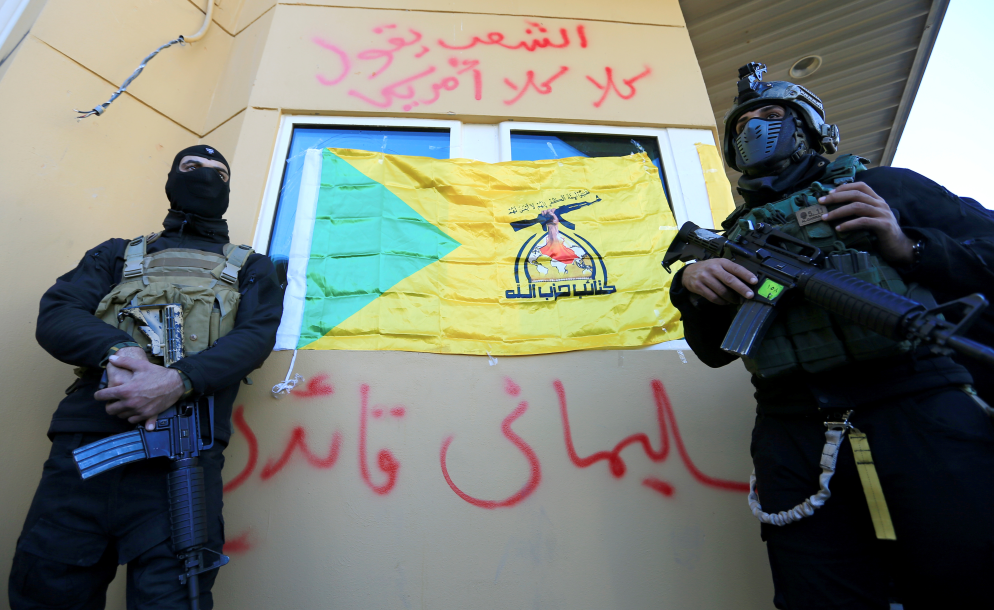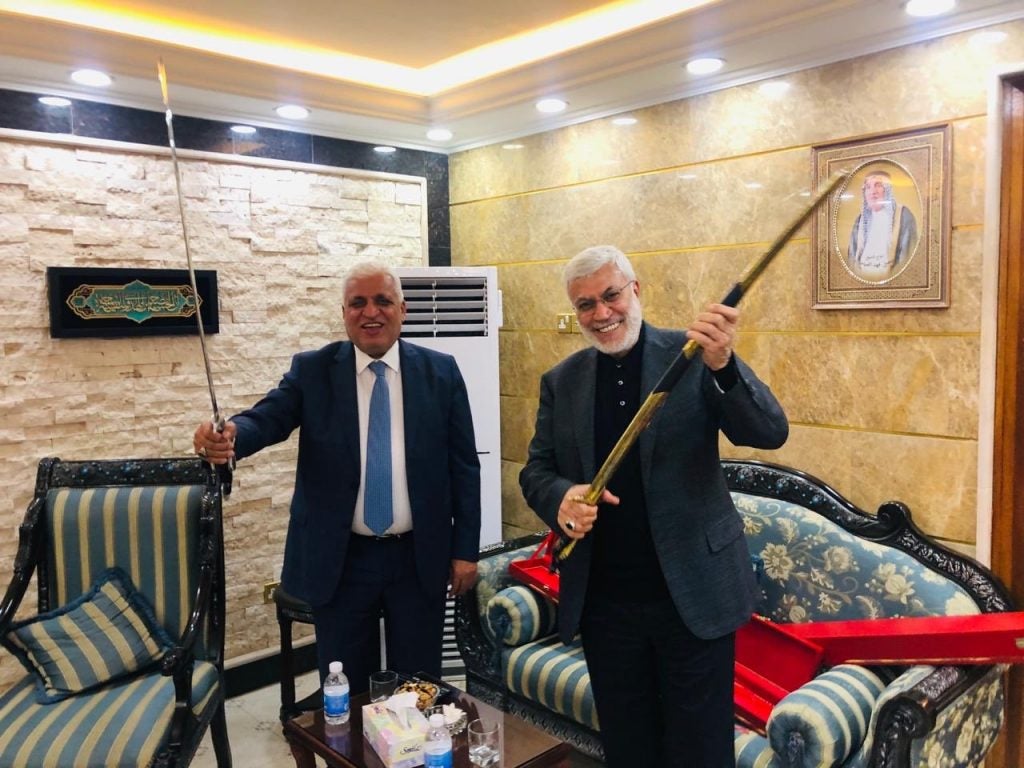Iraqi Government Fumes After US Announces Global Sanctions On Militia Leader
The Iraqi Ministry of Foreign Affairs has been “surprised” by the US Treasury announcing sanctions on Falih al-Fayyadh, Chairman of the Iraqi Popular Mobilization Committee and former Iraqi National Security Advisor. The sanctions were put in place under the Magnitsky Act which allows the US government to impose global sanctions on individuals that are deemed human rights offenders, it immediately freezes their assets and ban them from entering the US.
In a press release issued on Saturday, the Ministry said:
“We stress that the decision was an unacceptable surprise and point out that the Ministry will carefully follow up with the current and new administration in Washington all decisions issued by the US Treasury Department against Iraqi names and work to address this matter.”
The statement comes a day after the Treasury announced that its Office of Foreign Assets Control (OFAC) had designated al-Fayyadh pursuant to Executive Order (E.O.) 13818 for his connection to serious human rights abuse, in particular the Popular Mobilization Units’ brutal crackdown on the Iraqi protests that have been ongoing since October 2019. The Treasury announcement notes that “Al-Fayyadh was part of a crisis cell comprised primarily of Popular Mobilization Forces (PMF) militia leaders formed in late 2019 to suppress the Iraqi protests with the support of Iran’s Islamic Revolutionary Guard Corps-Qods Force (IRGC-QF)”.
“By directing and supervising the murder of peaceful Iraqi demonstrators, Iran-aligned militants and politicians such as Falih al-Fayyadh have been waging a violent campaign against Iraqi democracy and civil society,” said Secretary Steven T. Mnuchin. “The United States will continue to hold accountable human rights abusers in Iraq who aim to deny the Iraqi people in their efforts to peacefully protest, seek justice, and root out corruption in their country.”

The Iran-funded and trained PMF’s crackdown on the protest movement drew much condemnation from observers due to its brutality, with photos, video and postmortem CT scans showing tear gas canisters lodged in the skulls of murdered protesters being a horrifyingly commonplace sight from the protests. Until now, little had been done in Iraq or abroad on the governmental level to address or even acknowledge the criminality of the PMF conduct there or in other parts of Iraqi life. The PMF’s official media account was dismissive of the announcement, congratulating al-Fayyadh for joining the ranks of “honorable people deemed enemies by the United States”.
While the designation of al-Fayyadh shows that the current US administration does take the PMF situation somewhat seriously (even if after a fashion), the announcement’s true value will lie with the incoming administration, rather than the one with just over a week of life left in it. While the incoming National Security Adviser, Jake Sullivan, has stated that “the Biden-Harris administration will stand up against human rights violations wherever they occur”, such a statement is on an almost certain collision course with any concessions Iran may demand for a return to the JCPOA, like a return to turning a blind eye to PMU abuses as long as they nominally appear to fight ISIS.

